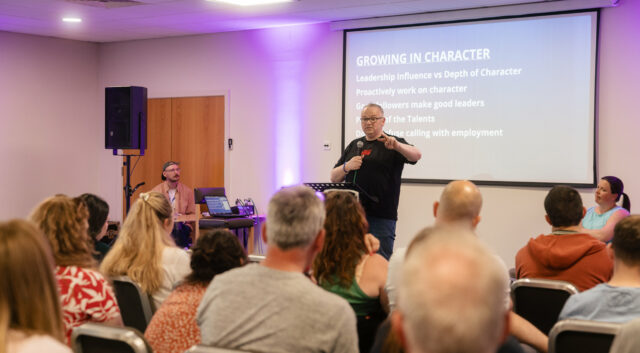COVID-19 has forced the activity of the Church to change. Programs were stopped. Everything we’d wanted to implement, but hadn’t found the right time, was suddenly possible. We were given a blank slate.
With this blank slate came, for the most part, an unprecedented level of grace and understanding from our congregations. Permission to change things, get things wrong, try things out. We were allowed and even encouraged, to restructure everything. When else do we get that chance?
Our leaders’ meetings moved online and are better attended than ever as the need for babysitters is removed. In our church, the Youth have moved from meeting all together on a Tuesday night into five online small groups. It’s something they’d discussed for a while but hadn’t had the buy-in or found the right moment. And it has thrived. Engagement and consistency are at an all-time high, those who were on the fringes are embedded in community, and the young people are growing in their faith.
Large churches have been able to produce great content, which has left some smaller churches feeling inadequate that they can’t provide for their people in the same way. But as this year has continued what I have noticed is that smaller churches are better able to connect with their people, and connection is more powerful than content. The old mantra of “I don’t want to know how much you know, I want to know how much you care” has never been more true, and the fact is that smaller, geographically focussed faith communities are better placed to show how much they care. When it comes to lockdown church, small is beautiful.
This concept that small is beautiful takes me back to the early stages of planting a church. It didn’t matter what we did, just that we did something, connected with our people, and knew each other. Discipleship wasn’t a program, it was every conversation we had. We were forced to innovate on a weekly basis, and our size gave us an agility that allowed us to do so.
Agility, flexibility and adaptability are the greatest tools churches have in this cultural moment. The Chinese jiating (house church) movement has for the last 70 years been one of the fastest-growing church movements in history because they have focussed on multiplication rather than addition. They cannot simply add people to a single church community, because the risk of discovery and persecution increases with each member. So instead they multiply small communities. While we don’t face the same persecution, we do face a similar problem. The bigger the church, the harder it is to meet in-person.
Lockdown happened very suddenly, but as we begin the slow process of lifting it we realise that we are not going to be able to meet in large numbers in the same way for a long time, so how do we connect with people? We do it by multiplying – not adding more and more people to an ever-growing congregation, but by multiplying at a smaller level – prayer triplets, alpha courses, small groups.
Don’t hear me wrong, large churches are wonderful things and able to bring a great change in our towns and cities, but we cannot go back to seeing them as the only or best model.
Crisis creates change, and from this crisis will emerge new models and new ways of doing church. The ones that will thrive are the ones that continue to listen to the voice of God and innovate on the prompting of the Holy Spirit.
When Jesus was on Earth he spent the majority of his time with his 12 disciples and with his inner circle of three. It is in the midst of community that we are deeply formed and moulded, loved and challenged, listened to and encouraged. Content alone can never transform us in the way a Jesus-centred community can, and it is in these time-intensive and deeply formative communities that Jesus modelled for us that small is beautiful.









